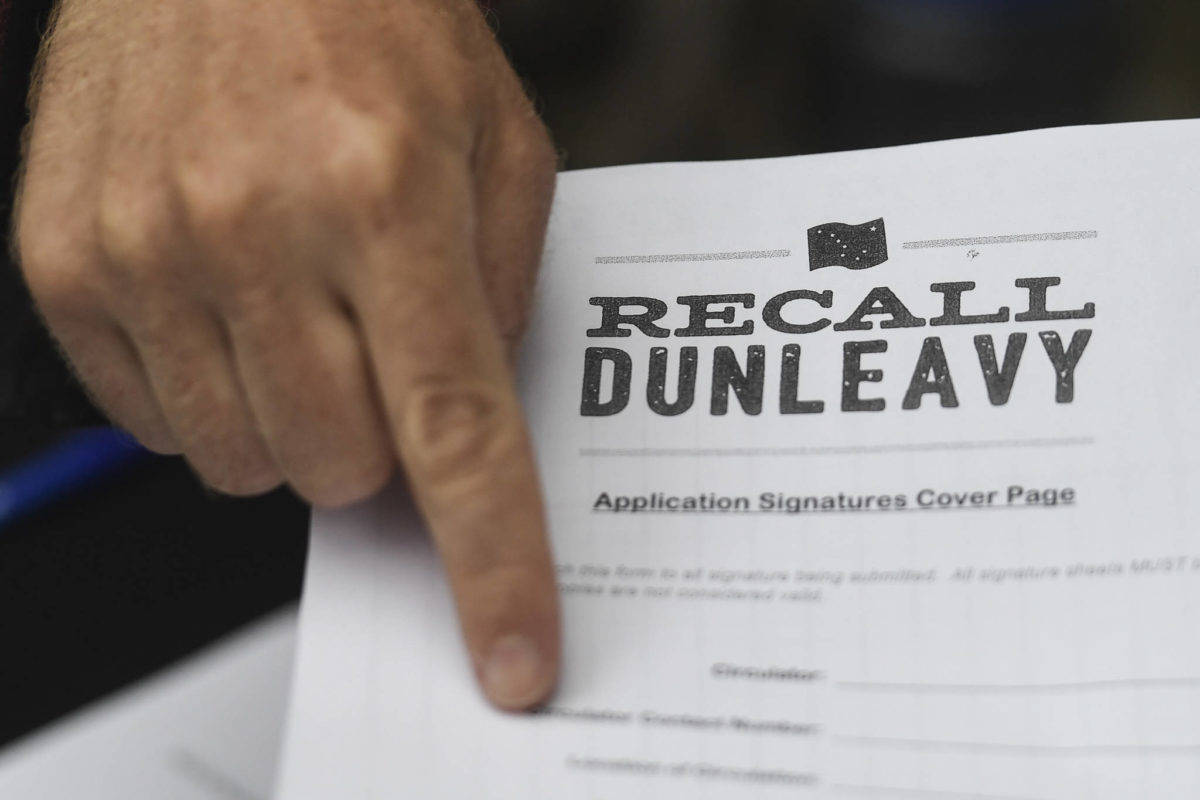Last summer, Keren Lowell posted criticisms of Gov. Mike Dunleavy on social media and helped gather signatures for the petition to recall him. It now appears his administration trampled on those constitutionally protected freedoms by not rehiring her.
The irony of this story is that Dunleavy may have violated Alaska law, the Alaska Constitution and the U.S. Constitution in a more serious way than those stated on the application to recall him.
Lowell is a respected artist and educator who had been employed by the Alaska State Council on the Arts since 2011. In 2018, she was promoted to a position as Visual and Literary Arts Program Coordinator. On her performance evaluation last April, the Council’s executive director wrote that it’s rare for an evaluator to “express than an employee is irreplaceable, however, Ms. Lowell is truly a backbone for the agency.”
But to Dunleavy, the Arts Council represented a poor use of state funds. He vetoed its entire budget. Lowell lost her job. And after the Council’s budget was restored, she was the only staff member not rehired.
Lowell isn’t going away without a fight. Writing on her behalf, the American Civil Liberties Union warned Dunleavy that he has until Jan. 9 to “return her to her position at the Council with the appropriate back pay and other compensation that adequately addresses the harms she has suffered.” Otherwise, they’ll take the matter to court.
The ACLU recognizes the possibility that Dunleavy wasn’t involved in the decision not to rehire Lowell. However, after referring to his firings of at-will employees when he took office last December, they argue he established a culture which encourages others in his administration to consider a person’s political allegiance when make hiring decisions.
Their nine-page letter also references a near unanimous U.S. Supreme Court ruling that protects the freedom of speech rights of government employees on matters of public interest; court precedents prohibiting retaliation against any employee who exercise that freedom; and the high bars the state must overcome before it can legally limit an employee’s speech or prove that the state’s interests outweigh an individual’s rights.
What’s not mentioned is the constitutional right of state employees to sign the recall petition. That’s probably because there’s no evidence that Lowell’s signature on it had any bearing on the administration’s decision not to rehire her.
But this is worth discussing because if the state Supreme Court allows the recall to advance, a second petition must be submitted to the Division of Elections. And state employees should feel secure in their right to sign it without fear of retaliation.
In the U.S. Constitution, petitioning our government is the fifth right stated in the First Amendment. It’s “unknown to most Americans,” says David Shestokas, an attorney and author of the book “Constitutional Sound Bites.” He states most who are aware of it believe it’s “an extension of the first four rights, and not a right that stands on its own.”
Alaska’s Constitution clearly separates the right to petition from the freedom of speech. And in the case of initiatives, referendums and recalling elected officials allowed by the Constitution, signing a petition is really an extension of our voting rights.
However, the petition isn’t secret like a ballot. Once the Division of Elections completes the signature verification process, for a small fee, anyone can request a copy that includes the names of all the people who signed it.
Lowell’s story provides evidence people in Dunleavy’s administration might be monitoring social media for the purpose of identifying employees who aren’t loyal to the governor. They could conceivably do the same with the recall petitions. And any state employee eligible for step increases or promotions inclined to sign the second one might feel intimidated enough not to do so.
Furthermore, Suzanne Downing shows just how low Dunleavy’s surrogates will go. The former Communication Director for the Republican Party says she “combed through the list” of signatures on initial petition looking for names of anybody connected to a news organization, including spouses.
Dunleavy needs to reassure state employees and their spouses that he won’t infringe on their constitutional rights to sign the petition. He should issue a public statement that to that effect and warn everyone in his administration that he won’t tolerate any form of voter intimidation.
• Rich Moniak is a Juneau resident and retired civil engineer with more than 25 years of experience working in the public sector. My Turns and Letters to the Editor represent the view of the author, not the view of the Juneau Empire.

